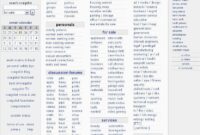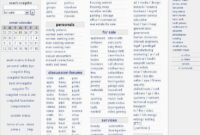F150 Trucks For Sale By Owner: Your Comprehensive Guide to a Smart Purchase pickup.truckstrend.com
The Ford F-150 isn’t just America’s best-selling truck; it’s an institution. Renowned for its unparalleled versatility, rugged durability, and continuous innovation, the F-150 serves as a workhorse for businesses, an adventurous companion for outdoor enthusiasts, and a reliable family vehicle. While dealerships offer a convenient pathway to ownership, a significant portion of the market thrives on "For Sale By Owner" (FSBO) transactions. Buying an F-150 directly from its previous owner can unlock significant benefits, from potential cost savings and direct negotiation to gaining unique insights into the vehicle’s history. However, this route also demands a diligent approach, requiring buyers to be well-informed and proactive. This comprehensive guide will equip you with the knowledge and actionable strategies to navigate the private sale market and confidently secure your ideal F-150.
Why Consider an F-150 For Sale By Owner? Unpacking the Pros and Cons
F150 Trucks For Sale By Owner: Your Comprehensive Guide to a Smart Purchase
Opting for a private seller over a dealership can be a shrewd financial move, but it’s essential to weigh both the advantages and the potential pitfalls.
Benefits of Buying FSBO:
- Cost Savings: Private sellers typically have lower overheads than dealerships, meaning they can often offer more competitive prices. You avoid dealership markups, administrative fees, and sometimes, even sales tax depending on your state’s regulations (though this varies widely).
- Direct Negotiation: The negotiation process is often more flexible and personal. You’re dealing directly with the decision-maker, which can lead to a more favorable deal if you come prepared with market research.
- Transparency and History: The seller usually has a direct, firsthand account of the vehicle’s history, maintenance, and any quirks. This personal insight can be invaluable, offering a level of transparency rarely found at a dealership.
- No Sales Pressure: Unlike dealerships, private sellers aren’t operating on sales quotas. This means a more relaxed atmosphere, allowing you to take your time and make an informed decision without feeling rushed or pressured into an upsell.

Potential Challenges and Considerations:
- "As-Is" Sale: Most private sales are "as-is," meaning there’s no warranty or guarantee from the seller once the transaction is complete. Any issues discovered after purchase are your responsibility.
- No Financing Support: Private sellers don’t offer financing. You’ll need to secure a pre-approved loan from a bank or credit union before approaching the seller, or pay with cash.
- Increased Due Diligence: The onus is entirely on you to conduct thorough research, inspections, and paperwork. There’s no dealership to handle the title transfer or ensure the vehicle is in roadworthy condition.
- Potential for Hidden Issues: While most sellers are honest, there’s always a risk of undisclosed mechanical problems or title complications (e.g., an outstanding lien).
Where to Find Your Next F-150: Top Sources for Private Sales
Finding the right F-150 begins with knowing where to look. The digital age has opened up numerous avenues for connecting private sellers with eager buyers.
- Online Marketplaces: These are your primary hunting grounds.
- Facebook Marketplace: Highly popular for local sales, offering direct messaging and often public profiles for a sense of seller credibility.
- Craigslist: Still a go-to for many, though it requires extra caution regarding scams. Local listings are abundant.
- AutoTrader & Cars.com (Private Seller Sections): While known for dealer listings, both platforms have robust private seller sections, often with more detailed listings and photos.
- eBay Motors: Good for a wider geographical search, often featuring more specialized or unique F-150 models.
- Dedicated Forums and Enthusiast Groups: F-150 specific forums (e.g., F150forum.com, F150online.com) and Facebook groups for truck enthusiasts often have "For Sale" sections where members sell their well-maintained vehicles. These can be goldmines for finding trucks cared for by passionate owners.
- Local Avenues: Don’t underestimate traditional methods.
- Word-of-Mouth: Let friends, family, and colleagues know you’re looking.
- "For Sale" Signs: Keep an eye out for trucks with "For Sale" signs in your neighborhood.
- Local Classifieds/Bulletin Boards: Community papers or grocery store bulletin boards can sometimes yield results.
When searching online, use specific keywords like "Ford F-150 for sale by owner," "F150 private sale," or include year ranges and trim levels to narrow your search.
The Pre-Purchase Process: Due Diligence is Non-Negotiable
This is the most critical phase of buying an F-150 from a private seller. Skipping steps here can lead to costly regrets.
- Initial Research: Before contacting any seller, understand the F-150 generations, popular engine options (e.g., 2.7L EcoBoost, 3.5L EcoBoost, 5.0L V8), common trim levels (XL, XLT, Lariat, King Ranch, Platinum, Limited, Raptor), and their typical features. Research common issues specific to certain model years you’re considering.
- First Contact and Key Questions: When you find a promising listing, contact the seller. Ask:
- Reason for selling?
- Maintenance history and records availability?
- Any accidents or major repairs?
- Known issues or quirks?
- Title status (clean, salvage, rebuilt)?
- How long have they owned it?
- Is the price firm or negotiable?
- Vehicle History Report (VHR): This is paramount. Purchase a CARFAX or AutoCheck report using the VIN (Vehicle Identification Number) provided by the seller. This report will reveal:
- Accident history, including severity.
- Previous owners and service history (if reported).
- Odometer discrepancies.
- Flood, fire, or salvage titles.
- Lien status (crucial!).
- Recall information.
- Preliminary Physical Inspection: Before driving, do a walk-around. Look for:
- Exterior: Rust (especially on the frame, wheel wells, and rocker panels), mismatched paint (sign of repair), uneven panel gaps, tire condition (uneven wear indicates alignment issues), fluid leaks under the truck.
- Interior: Condition of seats, dashboard, headliner; check all lights, windows, locks, HVAC, and infotainment system. Look for any warning lights on the dash.
- Test Drive: Drive the F-150 on various road types (city, highway, bumps).
- Engine: Listen for unusual noises (knocking, ticking, excessive exhaust noise), check acceleration.
- Transmission: Smooth shifts? Any hesitation or jerking?
- Brakes: Firm pedal? Any squealing, grinding, or pulling?
- Steering & Suspension: Does it pull to one side? Any clunking over bumps?
- Electronics: Test everything: radio, navigation, power seats, sunroof, four-wheel drive system.
- Professional Pre-Purchase Inspection (PPI): This is the single most important step. After a satisfactory initial check and test drive, arrange for an independent, certified mechanic to perform a thorough inspection. They will put the truck on a lift, check for underlying issues, assess components you can’t see, and provide an unbiased report. The cost (typically $100-$200) is a small investment that can save you thousands.
Negotiating and Closing the Deal: Smart Tactics for a Successful Purchase
Once you’ve done your due diligence and the F-150 passes the PPI, it’s time to talk numbers and complete the transaction.
- Research Fair Market Value: Use reputable sources like Kelley Blue Book (KBB.com), NADA Guides (NADAguides.com), and Edmunds.com to determine the F-150’s fair market value based on its year, mileage, trim, condition, and features. Compare it with similar F-150s currently for sale in your area.
- Negotiation Strategy:
- Be Prepared: Know your maximum budget and the F-150’s market value.
- Be Polite but Firm: Base your offer on your research and any findings from the PPI (e.g., if the mechanic found issues, use that as leverage for a lower price).
- Start Lower: Offer slightly below your target price to leave room for negotiation.
- Don’t Be Afraid to Walk Away: If the seller isn’t reasonable or you feel uncomfortable, be prepared to look for another F-150.
- Secure Payment: For larger sums, a cashier’s check from your bank is generally the safest option. Avoid personal checks or large amounts of cash. If there’s a lien on the title, the transaction must involve the lienholder bank directly to ensure the loan is paid off and the title is released properly.
- Paperwork and Title Transfer:
- Bill of Sale: Draft a detailed bill of sale that includes: buyer and seller names/addresses, date, F-150’s year, make, model, VIN, odometer reading, sale price, and "as-is" clause. Both parties should sign and keep a copy.
- The seller must sign over the vehicle title to you. Ensure the VIN on the title matches the truck. Verify that the title is clear (no liens) or that the lien has been properly released by the bank.
- Odometer Disclosure Statement: Most states require a separate form disclosing the odometer reading.
- Registration and Plates: You’ll need to visit your local Department of Motor Vehicles (DMV) or equivalent agency to register the F-150 in your name and get new license plates. Be prepared to pay sales tax and registration fees.
- Insurance: Secure insurance coverage before driving the F-150 off the seller’s property.
Understanding F-150 Pricing (Estimated Ranges)
It’s crucial to understand that F-150 prices vary significantly based on model year, trim level, mileage, condition, engine, features, and geographical location. The table below provides estimated ranges for F-150 trucks commonly found for sale by owner, assuming good to excellent condition. These are for illustrative purposes and should be cross-referenced with current market data.
F-150 Trucks For Sale By Owner: Estimated Price Ranges (USD)
| Model Year Range | Trim Level (Example) | Typical Mileage Range (Miles) | Estimated Price Range (USD) | Key Considerations / Notes |
|---|---|---|---|---|
| 2018-Present | Lariat (mid-trim) | 10,000-60,000 Miles | $35,000 – $55,000 | Newer tech, aluminum body, 10-speed auto. Lower mileage examples hold value well. |
| 2015-2017 | XLT (popular trim) | 50,000-100,000 Miles | $25,000 – $35,000 | First generation with aluminum body. Good value for features. |
| 2009-2014 | XLT/Lariat | 80,000-150,000 Miles | $15,000 – $25,000 | EcoBoost engines introduced. Check for timing chain issues on early EcoBoost. |
| 2004-2008 | XLT/Lariat | 120,000-200,000 Miles | $8,000 – $15,000 | Older generation, potential for rust, spark plug issues (5.4L). Price varies greatly with condition. |
| 1997-2003 | XL/XLT | 150,000-250,000+ Miles | $3,000 – $8,000 | Entry-level trucks, often used as work trucks. Rust is a major concern. |
Disclaimer: These are highly generalized estimates and do not account for regional variations, specific engine types (e.g., diesel, hybrid), specialized trims (e.g., Raptor), or vehicle-specific condition. Always consult current market data and a professional appraisal.
Frequently Asked Questions (FAQ) About Buying an F-150 By Owner
Q1: Is it safe to buy an F-150 from a private seller?
A1: Yes, absolutely, but only if you take all the necessary precautions outlined in this guide. The key is due diligence, including a vehicle history report, a thorough inspection, and a pre-purchase inspection by a trusted mechanic.
Q2: What documents do I need to buy an F-150 from a private owner?
A2: You will need the vehicle’s clean title (signed over by the seller), a detailed bill of sale, and often an odometer disclosure statement. The seller should also provide any available maintenance records.
Q3: Should I always get a pre-purchase inspection (PPI)?
A3: Yes, without exception. A PPI by an independent, certified mechanic is your best defense against buying a truck with hidden mechanical issues. It’s a small investment that can save you thousands.
Q4: How do I know if the F-150’s price is fair?
A4: Research current market values using tools like Kelley Blue Book (KBB.com), NADA Guides, and Edmunds. Compare the listed F-150 with similar trucks (year, trim, mileage, condition) currently for sale in your local area.
Q5: What if the F-150 has a lien on the title?
A5: Do not pay the seller directly. The transaction must involve the lienholder bank. You or the seller will need to contact the bank to facilitate the payoff of the loan and the release of the title directly to you. This ensures you receive a clear title.
Q6: Can I finance an F-150 purchased from a private seller?
A6: Yes, many banks and credit unions offer loans for private party vehicle purchases. However, it’s typically more involved than dealer financing. You’ll need to get pre-approved for the loan before you make an offer to the seller.
Q7: What are some common F-150 issues to watch out for across generations?
A7: Common issues can include rust (especially on older models and the frame), spark plug issues (particularly on 5.4L V8 engines), cam phaser issues (on some V8 and EcoBoost engines), transmission concerns (some earlier models), and timing chain stretch on certain EcoBoost engines. A PPI will help identify these.
Conclusion: Driving Away with Confidence
Buying an F-150 truck for sale by owner can be an incredibly rewarding experience, offering the potential for significant savings and a deeper understanding of your vehicle’s history. However, it’s a path that demands diligence, patience, and a willingness to do your homework. By thoroughly researching the market, performing meticulous inspections (including that all-important pre-purchase inspection), understanding the paperwork, and negotiating wisely, you empower yourself to make a smart and confident purchase. Approach the process with caution, arm yourself with knowledge, and you’ll soon be enjoying the legendary capabilities of your F-150, knowing you secured a great deal through a well-executed private transaction.


